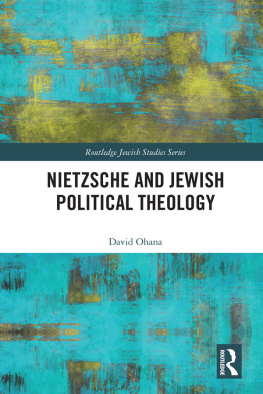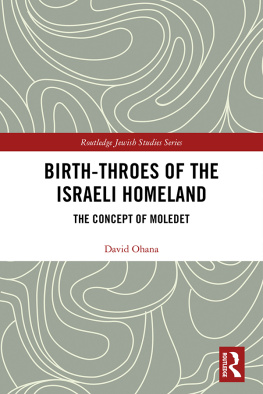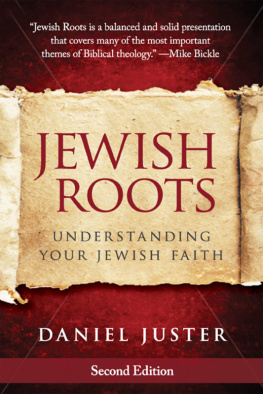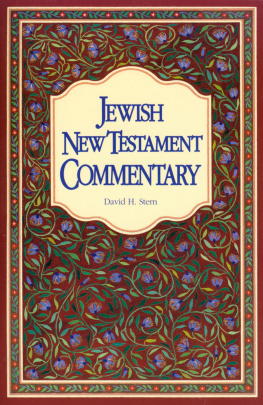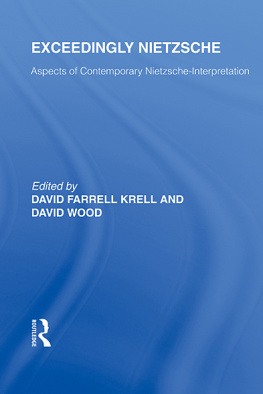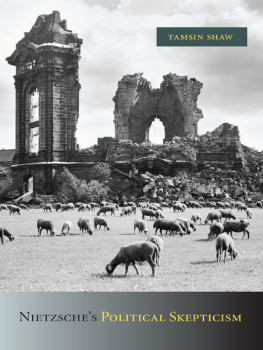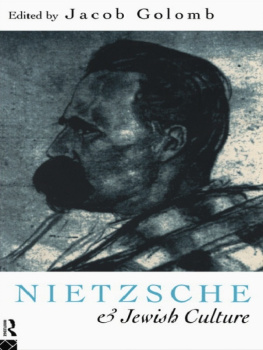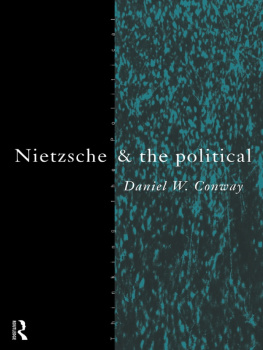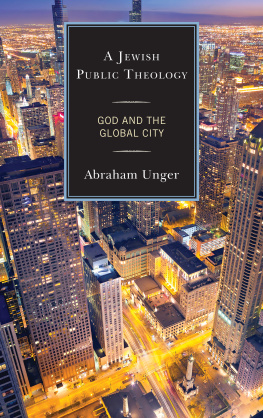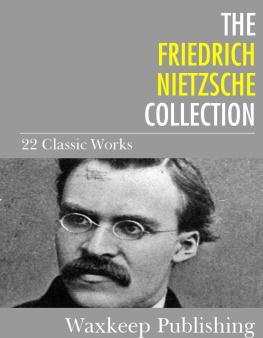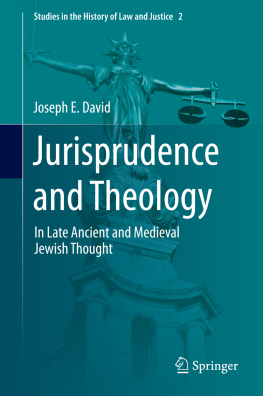David Ohana - Nietzsche and Jewish Political Theology
Here you can read online David Ohana - Nietzsche and Jewish Political Theology full text of the book (entire story) in english for free. Download pdf and epub, get meaning, cover and reviews about this ebook. year: 2018, publisher: Taylor & Francis (CAM), genre: Religion. Description of the work, (preface) as well as reviews are available. Best literature library LitArk.com created for fans of good reading and offers a wide selection of genres:
Romance novel
Science fiction
Adventure
Detective
Science
History
Home and family
Prose
Art
Politics
Computer
Non-fiction
Religion
Business
Children
Humor
Choose a favorite category and find really read worthwhile books. Enjoy immersion in the world of imagination, feel the emotions of the characters or learn something new for yourself, make an fascinating discovery.
- Book:Nietzsche and Jewish Political Theology
- Author:
- Publisher:Taylor & Francis (CAM)
- Genre:
- Year:2018
- Rating:4 / 5
- Favourites:Add to favourites
- Your mark:
- 80
- 1
- 2
- 3
- 4
- 5
Nietzsche and Jewish Political Theology: summary, description and annotation
We offer to read an annotation, description, summary or preface (depends on what the author of the book "Nietzsche and Jewish Political Theology" wrote himself). If you haven't found the necessary information about the book — write in the comments, we will try to find it.
David Ohana: author's other books
Who wrote Nietzsche and Jewish Political Theology? Find out the surname, the name of the author of the book and a list of all author's works by series.
Nietzsche and Jewish Political Theology — read online for free the complete book (whole text) full work
Below is the text of the book, divided by pages. System saving the place of the last page read, allows you to conveniently read the book "Nietzsche and Jewish Political Theology" online for free, without having to search again every time where you left off. Put a bookmark, and you can go to the page where you finished reading at any time.
Font size:
Interval:
Bookmark:

Nietzsche and Jewish Political Theology is the first book to explore the impact of Friedrich Nietzsches work on the formation of Jewish political theology during the first half of the twentieth century. It maps the many ways in which early Jewish thinkers grappled with Nietzsches powerful ideas about politics, morality, and religion in the process of forging a new and modern Jewish culture. The book explores the stories of some of the most important Jewish thinkers who utilized Nietzsches writings in crafting the intellectual foundations of Jewish modern political theology. These figures political convictions ranged from orthodox conservatism to pacifist anarchism, and their attitude towards Nietzsches ideas varied from enthusiastic embrace to ambivalence and outright rejection. By bringing these diverse figures together, the book makes a convincing argument about Nietzsches importance for key figures of early Zionism and modern Jewish political thought.
The present study offers a new interpretation of a particular theological position which is called heretical religiosity. Only with modernity and, paradoxically, with rapid secularization, did one find heretical religiosity at full strength. Nietzsche enabled intellectual Jews to transform the foundation of their political existence.
It provides a new perspective on the adaptation of Nietzsches philosophy in the age of Jewish national politics, and at the same time is a case study in the intellectual history of the modern Jewry. This new reading on Nietzsches work is a valuable resource for students and researchers interested in philosophy, Jewish history, and political theology.
David Ohana is a full professor of History at the Ben-Gurion University of the Negev, Israel. He is a senior fellow at the Jerusalem Van Leer Institute, where he founded and directed the Forum for Mediterranean Cultures. His affiliations have included the Sorbonne, Harvard, Berkeley, and the cole des Hautes tudes en Sciences Sociales, Paris.
Series Editor: Oliver Leaman
University of Kentucky
Jewish Studies, which are interpreted to cover the disciplines of history, sociology, anthropology, culture, politics, philosophy, theology, religion, as they relate to Jewish affairs. The remit includes texts which have as their primary focus issues, ideas, personalities and events of relevance to Jews, Jewish life and the concepts which have characterized Jewish culture both in the past and today. The series is interested in receiving appropriate scripts or proposals.
For a full list of titles in the series: www.routledge.com/middleeaststudies/series/JEWISH
Religious Studies and Rabbinics
A Conversation
Edited by Elizabeth Shanks Alexander and Beth A. Berkowitz
Jewish Religious and Philosophical Ethics
Edited by Curtis Hutt, Halla Kim and Berel Dov Lerner
The Bible and the Holy Poor
From the Tanakh to Les Misrables
David Aberbach
Violence and Messianism
Jewish Philosophy and the Great Conflicts of the Twentieth Century
Petar Bojani
Ethical Monotheism
The Philosophy of Judaism
Ehud Benor
Nationalism, War and Jewish Education
From the Roman Empire to Modern Times
David Aberbach
Nietzsche and Jewish Political Theology
David Ohana

First published 2019
by Routledge
2 Park Square, Milton Park, Abingdon, Oxon OX14 4RN
and by Routledge
52 Vanderbilt Avenue, New York, NY 10017
Routledge is an imprint of the Taylor & Francis Group, an informa business
2019 David Ohana
The right of David Ohana to be identified as author of this work has been asserted by him in accordance with sections 77 and 78 of the Copyright, Designs and Patents Act 1988.
All rights reserved. No part of this book may be reprinted or reproduced or utilised in any form or by any electronic, mechanical, or other means, now known or hereafter invented, including photocopying and recording, or in any information storage or retrieval system, without permission in writing from the publishers.
Trademark notice: Product or corporate names may be trademarks or registered trademarks, and are used only for identification and explanation without intent to infringe.
British Library Cataloguing-in-Publication Data
A catalogue record for this book is available from the British Library
Library of Congress Cataloging-in-Publication Data
A catalog record for this book has been requested
ISBN: 978-1-138-36010-5 (hbk)
ISBN: 978-0-429-43331-3 (ebk)
Typeset in Times New Roman
by Apex CoVantage, LLC
Part I
Fin de sicle Hebrew Nietzscheanism
Part II
Nietzschean religious Jews
Part III
The resurrection of myth
Part IV
Nietzsche in the Holy Land
The Nietzschean revolution which engulfed the intellectual, cultural, and political life of Europe began in the year in which its initiator died, the year in which the twentieth century was born. That century was in many ways an echo-chamber of some of Friedrich Nietzsches philosophical ideas, which were elaborated, internalized, distorted, and transfigured in a thousand ways. They served as an anvil on which concepts were forged and adopted by both revolutionary and conservative ideological, mythological, national, and political theologies, and as a laboratory in which a new man was formed who tried out the tools of a transfiguration of bourgeois, Christian and rationalist values.; and that of the relationship to Nietzsche of modern Jewish political theology. This study will focus on the third aspect the modern Jewish political theology via six Jewish thinkers influenced by Nietzsche: the Hassidic author Hillel Zeitlin, the religious philosopher Franz Rosenzweig, the religious thinker and intellectual Martin Buber, the mysticism scholar Gershom Scholem, the literary critic Baruch Kurzweil, and the right-winged intellectual Israel Eldad.
Emmanuel Ben-Gurion, the son of the writer and cultural critic Micha Josef Berdichevsky (18651921), described in his memoirs a visit his father made to Friedrich Nietzsches home in Weimar in 1898. This was nine years after the breakdown of the author of Thus Spoke Zarathustra and two years before his death. The account is deeply moving. Berdichevsky, known as the Nietzschean Hebrew, who was on the first floor, turned by Nietzsches sister into an archive, distinctly heard the footsteps of the philosopher pacing like a caged lion on the floor above. A quarter of a century later, the son and his mother also visited the archive in Weimar, and Emanuel Ben-Gurion related:
the old woman [Nietzsches sister] remembered her meeting with Berdichevsky twenty-five years earlier, and recalled a certain scene from a novel, The Leave Taker, which he had told her about. One of the characters (the hero of the novel or his friend), rejected the Torah, which he saw as the curse of his people, took hold of a Torah-scroll, stabbed it with a knife, and blood flowed from the parchment []. I cant say any more. The manuscript has disappeared and was perhaps destroyed.
It would seem that the stabbing of the Torah-scroll-which-bled symbolized to an extraordinary degree the revolt of the culture of the Hebrew revival against historical Judaism at the turn of the nineteenth and twentieth centuries. Berdichevskys rebellion from within was different from the rebellion of another Nietzschean Jew at that period, Otto Weininger, who took it to a nihilistic conclusion, seeking to negate his Jewishness by suicide. This conclusion was totally anti-Nietzschean, for the philosopher of the will to power affirmed existence as
Font size:
Interval:
Bookmark:
Similar books «Nietzsche and Jewish Political Theology»
Look at similar books to Nietzsche and Jewish Political Theology. We have selected literature similar in name and meaning in the hope of providing readers with more options to find new, interesting, not yet read works.
Discussion, reviews of the book Nietzsche and Jewish Political Theology and just readers' own opinions. Leave your comments, write what you think about the work, its meaning or the main characters. Specify what exactly you liked and what you didn't like, and why you think so.

